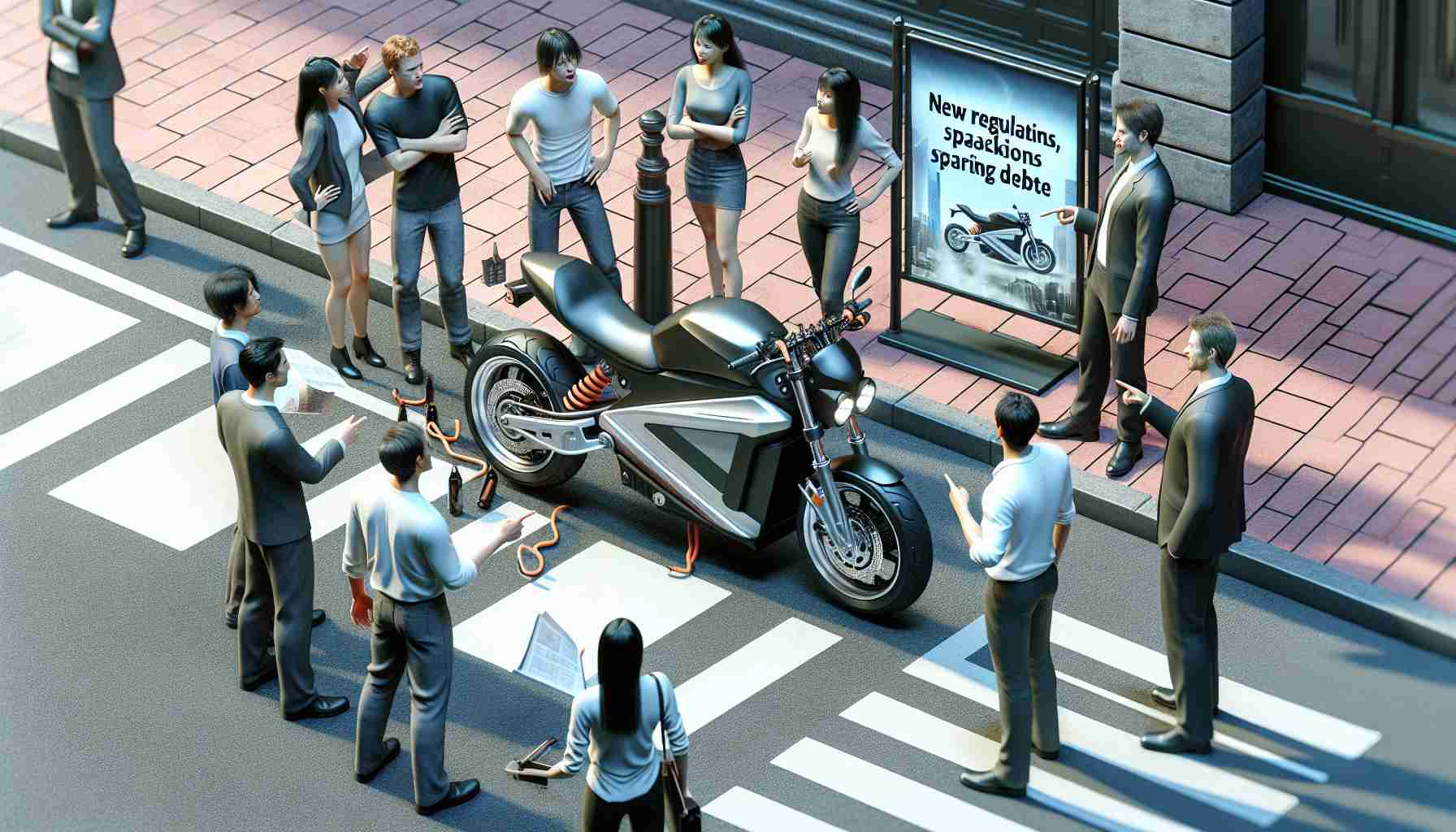The world of electric motorcycles is currently at a crossroads. While electric vehicles are becoming more common, road-going electric motorcycles face significant challenges, primarily due to their limited range. This has left many potential users unconvinced about their practicality for long-distance trips or adventurous outings compared to traditional gas-powered bikes.
Experiences with various models have shown that electric motorcycles only thrive within city limits, and even then, primarily for individuals who have easy access to home charging solutions. The existing infrastructure for public charging remains insufficient, compounded by the fact that most electric motorcycles deliver a disappointing real-world range of under 100 miles per charge. This performance gap is largely due to smaller battery sizes which can’t compete with the energy density of gasoline, causing range anxiety for many riders.
Amidst these challenges, California’s Air Resource Board (CARB) has proposed ambitious new regulations aimed at pushing the industry towards more sustainable practices. CARB’s regulations would require motorcycle manufacturers to meet Euro 5 emissions standards and increase the sales of electric motorcycles to at least 10% by 2028, and 50% by 2035. These changes are aimed at reducing air pollution and aligning with stringent international standards.
However, given the current state of electric motorcycle technology, these regulations pose a significant challenge for manufacturers and consumers alike. While advancements have been made with lightweight and off-road electric bikes, such as the Stark Varg, on-road options remain limited. As the transition to electric mobility accelerates, the industry must innovate to prevent further company closures and ensure a viable future for electric motorcycles.
Will Electric Motorcycles Lead to a Cleaner Future or Hit a Dead End?
The realm of electric motorcycles stands at a pivotal moment, with advancements rapidly evolving against the backdrop of ecological regulation and technological limitations. While the drive for greener transport solutions accelerates, several key issues and exciting developments have flown under the radar. These changes will redefine how people and communities interact with motorcycling and could reshape urban landscapes and economic sectors globally.
Beyond Range: The Hidden Advantages of Electric Motorcycles
Electric motorcycles offer benefits that trickle beyond the obvious environmental advantages. With simpler mechanical structures, these bikes require less maintenance, saving users significant time and money. Additionally, the absence of engine noise reduces urban noise pollution, creating more serene city environments. Another notable feature is the instant torque provided by electric motors, delivering a thrilling ride experience unmatched by many traditional bikes.
Moreover, countries investing in renewable energy see the potential for electric motorcycles as part of a clean energy ecosystem. Countries like Norway have achieved nearly complete renewable energy production, significantly reducing the carbon footprint of their electric vehicles, including motorcycles.
Controversy and Challenges: What’s Holding Electric Motorcycles Back?
Despite their promises, electric motorcycles face substantial hurdles. The high initial cost deters potential buyers, limiting adoption mainly to affluent enthusiasts. The scarcity of a dedicated charging network also raises logistical concerns, especially for apartment dwellers without personal garages.
Moreover, many manufacturers argue that stringent regulations like those proposed by California’s Air Resource Board could stifle innovation. Companies are tasked with developing and selling electric models quickly, yet market support remains tepid, and cost-effective technological breakthroughs lag behind expectations.
Can the Charging Infrastructure Catch Up?
Is the world ready for a surge in electric motorcycles? A significant piece of this puzzle lies in charging infrastructure. Countries that proactively expand their charging networks, like the Netherlands, demonstrate how strategic investments can accelerate electric vehicle uptake, bolstering economic and environmental returns. Conversely, regions slow to adapt may see stunted growth in this sector.
Exciting Innovations on the Horizon
There’s an undercurrent of exciting innovation that could tip the scales. Battery technologies like solid-state batteries are showing promise, with their potential for greater energy density and reduced charging times. Additionally, developments in quick battery swapping systems could eliminate downtime, offering flexibility and convenience for long-distance riders.
Startups are also exploring hybrid solutions, combining electric propulsion with small combustion engines to extend range without sacrificing eco-friendliness.
What Does the Future Hold?
The future of electric motorcycles is filled with potential but fraught with challenges. Will manufacturers keep pace with regulatory pressure and consumer skepticism? Will infrastructure lag behind, or will innovative solutions light the way?
Ultimately, the key to success lies in collaboration between governments, manufacturers, and consumers to create an ecosystem that supports sustainable growth and innovation. If successful, electric motorcycles could well spearhead a new age of environmentally friendly transportation with ripple effects benefiting society at large.
For more information on sustainable automotive innovations, visit CNET.







